Discover Happy English Podcast
Happy English Podcast

Happy English Podcast
Author: Michael Digiacomo Happy English
Subscribed: 32,520Played: 1,279,899Subscribe
Share
© 2014 -2025 Michael DiGiacomo, Happy English Language Services Co.
Description
This is an American English Podcast with your host Michael DiGiacomo from Happy English in New York City. You will learn real American English speaking and pronunciation with Michael, who has been teaching English since 1994. This is an English as a Second Language (ESL) and English as a Foreign Language (EFL) podcast that brings you fun, practical, and useful English lessons which are ideal for intermediate and advanced level English learners everywhere. This podcast is perfect for university students, business professionals, homemakers, retirees and anyone who is interested in learning and improving their English skills. Every week, you are going to learn American English idioms, conversational expressions and phrasal verbs. As your American English teacher, I will help you learn real and natural American English pronunciation and conversational style. You will get the chance to improve your vocabulary and have a clear understanding of practical English grammar. I also help you have a deeper understanding of American Culture through language learning. Join my podcast learner's study group to practice these lessons with me each week on zoom. Get Happy, Get English. Happy English!
942 Episodes
Reverse
So I got invited to another one of Jack’s parties. If I go by myself, there’s a good chance I won’t know anyone, which is ok, unless a lot of people come. But if Jenny comes with me, then there’s a better chance of having fun. I wonder if she’ll go... or come with me. Come and go. That’s the magic - and the confusion - of the verbs come and go in English. They seem simple… but they can be really tricky. Today we’re going to clear up one of the biggest confusions that even intermediate and advanced learners struggle with: the difference between come and go.Watch video versions of the Happy English Podcast on YouTube: https://www.youtube.com/@HappyEnglishNY/podcastsBuild Vocabulary With My Free Vocabulary Workshop: https://learn.myhappyenglish.com/vocabulary-workshop-signup
The other day, I was thinking about the difference between though, even though, and although. Even though they all mean but, there’s a difference, though. And although you may not have learned it before… you’ll learn it today.Though, Even Though, & Although all - express contrast, like you say one thing, but then mention something opposite. But how we use them depends on the situation, how formal or casual we want to sound, and the rhythm of the sentence. So today, I’ll walk you through the differences between though, even though, and although... with clear, natural examples to help you speak more fluently and confidently.Watch video versions of the Happy English Podcast on YouTube: https://www.youtube.com/@HappyEnglishNY/podcastsBuild Vocabulary With My Free Vocabulary Workshop: https://learn.myhappyenglish.com/vocabulary-workshop-signup
Hey there! It’s Michael here - and welcome back to Speak Naturally in a Minute from Happy English. I’m here every Sunday with a quick one-point lesson to help you improve your pronunciation, rhythm, and intonation.And if you want to watch this lesson, just look for Happy English Podcast on YouTube.As we’ve said before, in everyday spoken American English, we often use reduction - that means we shorten or soften sounds when we speak.Today, let’s look at two really common question reductions that you hear all the time in natural spoken English: don’t you and won’t you. These are pronounced like, doncha and wonchaWhen we say don’t you, the T of don’t blends with the Y of you. Don’t you becomes doncha. Like “Doncha wanna go?” “Doncha know him?” “Doncha like it” DonchaAnd when we say won’t you, the T of won’t blends with the Y of you. Won’t you becomes woncha. “Woncha join us for lunch?” “Woncha come inside?” “Woncha tell me?” WonchaSo remember. Doncha and Woncha. These natural ways to say don’t you and won’t you in American English. They help the rhythm stay smooth and make the whole sentence easier to say.And if you want to sound more natural yourself, try using them in casual conversation. Hey, thanks for listening! And remember to follow and subscribe so you won’t miss the next Happy English Podcast and next Sunday’s Speak Naturally in a Minute. Until next time, keep learning and keep it cool.Watch video versions of the Happy English Podcast on YouTube: https://www.youtube.com/@HappyEnglishNY/podcastsBuild Vocabulary With My Free Vocabulary Workshop: https://learn.myhappyenglish.com/vocabulary-workshop-signup
Hey there! It’s Michael here - and welcome back to English Tips in a Minute from Happy English. I’m here every Saturday with a short, simple tip to help you speak English more naturally and confidently. And by the way, if you want to watch this lesson, just look for Happy English Podcast on YouTube.Today, let’s look at a really useful conversational phrase - “What’s up with…?”We use what’s up with…? to ask about something we don’t understand. It’s another way to say“What’s the situation with…?” And you can use it for people, for events, or even for weird situations.Like, Maybe your coworker is acting strange. You can say: “What’s up with John today?”Or if you’re confused about a rule at work, you might say: “What’s up with casual Fridays? Can we wear jeans or not?”We also use it to talk about trends or new behaviors we don’t get. Like: “I don’t know what’s up with kids these days and that 6-7 thing.”One thing to keep in mind is tone. With a neutral tone, it sounds curious. With a strong tone, it can sound annoyed or frustrated: “Oh man, what’s up with all this traffic today?”What’s up with waiting? Go try this phrase in your next conversation! Lemme know in the comments how it goes, and remember to follow or subscribe so you don’t miss the next Happy English Podcast and next Saturday’s English Tips in a Minute. Hey, thanks for listening. And until next time, keep learning and keep it cool.Watch video versions of the Happy English Podcast on YouTube: https://www.youtube.com/@HappyEnglishNY/podcastsBuild Vocabulary With My Free Vocabulary Workshop: https://learn.myhappyenglish.com/vocabulary-workshop-signup
Hey there! It’s Michael here, and welcome back to Phrasal Verbs in a Minute from Happy English.I’m here every Friday with a quick one-point lesson to help you learn a new phrasal verb and sound more natural when you speak. By the way, if you want to see the video version of this lesson, just look for Happy English Podcast on YouTube.Today’s phrasal verb is brush up on. When you brush up on something, it means you review it or practice it again so you can improve. We usually use brush up on for skills, subjects, and knowledge.For example, before my trip to Paris, I brushed up on my French a little.And yesterday, my friend Emma brushed up on her Excel skills before her job interview.If you want to brush up on your English, why not take a lesson with me!And here’s a pronunciation tip: brush up on sounds like bruh-shuh-pon. The SH of brush links with UP, and the P of UP links with ON bruh-shuh-pon That makes it smooth and quick.So how about you? What’s something you want to brush up on? Maybe English, a hobby, or a skill you haven’t used in a while? Let me know in the comments, and remember to follow or subscribe so you don’t miss the next Happy English Podcast and next week’s Phrasal Verbs in a Minute. Hey, thanks for listening. And until next time, keep learning and keep it cool.Watch video versions of the Happy English Podcast on YouTube: https://www.youtube.com/@HappyEnglishNY/podcastsBuild Vocabulary With My Free Vocabulary Workshop: https://learn.myhappyenglish.com/vocabulary-workshop-signup
Do you need a pick-me-up? I’m not being a show-off when I say that our little online get-togethers like this podcast are probably good for your English. Thanks for tuning in! Let me start with a quick question. Have you ever heard someone say, “We’re having a little get-together this weekend”? Or maybe, “I could really use a pick-me-up”? You might think, wait a second – isn’t get a verb? Isn’t get together a phrasal verb? Yep - but when we add a hyphen and use it as a noun, it becomes something totally different. Today, we’re going to look at these kinds of phrases that native speakers use all the time, but they don’t always show up in grammar books. These are called phrasal nouns and for today’s lesson, we’re going to see how those verbs become nouns, and how we use them in conversation. Watch video versions of the Happy English Podcast on YouTube: https://www.youtube.com/@HappyEnglishNY/podcastsBuild Vocabulary With My Free Vocabulary Workshop: https://learn.myhappyenglish.com/vocabulary-workshop-signup
Let me ask you something… have you ever been surprised - like, really surprised - and you just didn’t know what to say in English? Imagine, you’re talking to a friend, and they say something totally unexpected. Like, “Hey, did you hear? Lisa is moving to Australia!” And you want to respond like a native speaker - with something more natural than just “Wow” OR “Really?”That’s what we’re going to look at today - casual, real-life phrases that native English speakers use to show surprise. And hey - this isn’t just fun stuff. These phrases help you sound more natural and more confident when you speak. So let’s jump in!Watch video versions of the Happy English Podcast on YouTube: https://www.youtube.com/@HappyEnglishNY/podcastsBuild Vocabulary With My Free Vocabulary Workshop: https://learn.myhappyenglish.com/vocabulary-workshop-signup
Hey there! It’s Michael here - and welcome back to Speak Naturally in a Minute from Happy English. I’m here every Sunday with a quick one-point lesson to help you improve your pronunciation, rhythm, and intonation.And if you want to watch this lesson, just look for Happy English Podcast on YouTube.Now, in everyday spoken American English, we often use reduction - that means we shorten or soften sounds when we speak. Today’s example is the word “didn’t.” First, most native speakers drop the D in the middle. So instead of “didn’t,” we say “dih-n’t.” “dih-n’t.” The reason is if you pronounce the final D of did, and the next sound is N, D followed by N makes the sound stop. Did-n’t. Dropping the D makes the sound smoother: “dih-n’t.” Like, “I didn’t see your message.” becomes “I din’t see your message.” OR “She didn’t call me back.” becomes “She dih-n’t call me back.” “dih-n’t.”And there’s one more thing. The final T in this word also tends to get very soft… or disappears. So “dih-n’t ” becomes “dih-n.” That’s right - both the D and the T get reduced. I’m sure you hear this all the time, like, “I didn’t hear you.” becomes “I dih-n hear you.” “She didn’t call me back.” becomes “She dih-n call me back.” and “They didn’t do it.” becomes “They dih-n do it.”This is not slang and it’s not lazy. It’s just how real American English flows. So next time you say didn’t, try relaxing your tongue a bit: “I dih-n know.” “I dih-n get it.” That’s the rhythm of natural American speech.Hey, thanks for listening! And remember to follow and subscribe so you won’t miss the next Happy English Podcast and next Sunday's Speak Naturally in a Minute. Until next time, keep learning and keep it cool.Watch video versions of the Happy English Podcast on YouTube: https://www.youtube.com/@HappyEnglishNY/podcastsBuild Vocabulary With My Free Vocabulary Workshop: https://learn.myhappyenglish.com/vocabulary-workshop-signup
Hey there! It’s Michael here - and welcome back to English Tips in a Minute from Happy English. I’m here every Saturday with a short, simple tip to help you speak English more naturally and confidently. And by the way, if you want to watch this lesson, just look for Happy English Podcast on YouTube.Today, let’s look at a really common phrase you’ll hear in everyday English - “Do me a favor.”We use do me a favor when we want to ask someone to do something for us. It’s usually for a small, everyday request, and it sounds more friendly than directly asking someone to do something. One common pattern is: Do me a favor and, plus a verb. You can say things like, “Do me a favor and close the window.” OR “Do me a favor and turn down the TV a little.”We also use Do me a favor followed by a sentence. Like, “Do me a favor. Hand me that dictionary over there.” OR “Do me a favor, don’t tell anyone what we just talked about.You can also use Do me a favor when you’re annoyed with someone. Like, Do me a favor and talk more quietly. OR Do me a favor. Stop smoking in this restaurant. Using “do me a favor” is a common, indirect way to soften your request. Even when you’re annoyed. So do me a favor and try using this phrase in one of your English conversations this week, ok?Lemme know in the comments how it goes, and remember to follow or subscribe so you don’t miss the next Happy English Podcast and next Saturday’s English Tips in a Minute. Hey, thanks for listening - and until next time, keep learning and keep it cool.Watch video versions of the Happy English Podcast on YouTube: https://www.youtube.com/@HappyEnglishNY/podcastsBuild Vocabulary With My Free Vocabulary Workshop: https://learn.myhappyenglish.com/vocabulary-workshop-signup
Today’s phrasal verb is chip in. When you chip in, it means you contribute money, effort, or help toward something - especially when everyone gives a little to make something happen.For example, at the office, we all chipped in to buy a birthday gift for our manager.And last weekend, my friends chipped in to rent a cabin in the mountains.And at home, my neighbors and I chipped in to help our elderly neighbor clean up his yeard. It was a nice way to do something together.And gere’s a pronunciation tip: Chip in sounds like chi-pin. The P at the end of chip links with in, so it sounds like chi-pin.So how about you? When was the last time you chipped in for something - maybe a gift, a party, or a project? Lemme know in the comments, and remember to follow or subscribe so you don’t miss the next Happy English Podcast and next week’s Phrasal Verbs in a Minute. Hey, thanks for listening - and until next time, keep learning and keep it cool.Watch video versions of the Happy English Podcast on YouTube: https://www.youtube.com/@HappyEnglishNY/podcastsBuild Vocabulary With My Free Vocabulary Workshop: https://learn.myhappyenglish.com/vocabulary-workshop-signup
Has this ever happened to you? Someone invites you to do something - maybe go out for dinner, or join a party - but you can’t go. Maybe you’re too busy. Maybe you don’t want to go. But you feel a little nervous about saying no? Yeah... totally understandable. Saying no in English isn’t always easy, so today let’s learn how to do it.In this lesson, we’re going to look at how we invite people in English, and more importantly, how to politely say no when you can’t accept that invitation. This is super helpful for conversations at work, school, or even with friends.Build Vocabulary With My Free Vocabulary Workshop: https://learn.myhappyenglish.com/vocabulary-workshop-signupWatch video versions of the Happy English Podcast on YouTube: https://www.youtube.com/@HappyEnglishNY/podcasts
Thanks for joining me today! If you’ve ever wondered what the difference is between “Have you eaten yet?” and “Are you still eating?”... or if you’re not sure when to use anymore - then this episode is for you. These four little words - still, yet, already, and anymore - seem simple, but when it comes to questions and negative sentences, things can get a little tricky. So today, we’ll take a deep dive into how they work, with plenty of real, everyday examples.Build Vocabulary With My Free Vocabulary Workshop: https://learn.myhappyenglish.com/vocabulary-workshop-signupWatch video versions of the Happy English Podcast on YouTube: https://www.youtube.com/@HappyEnglishNY/podcasts
Hey there! It’s Michael here - and welcome back to Speak Naturally in a Minute from Happy English. I’m here every Sunday with a quick one-point lesson to help you improve your pronunciation, rhythm, and intonation.And if you want to watch this lesson, just look for Happy English Michael on YouTube.In fact, the idea for today’s lesson came from a listener’s question on YouTube. It’s all about reductions. In language learning, reduction means shortening or softening sounds when we speak quickly - it’s what makes English sound smooth and natural. One really common example is when we say the phrase “I’m trying to.” It usually sounds like, “I’m tryin’ uh.” “I’m tryin’ uh.” There are three things happening here. First, I’m is pronounced as Ahm. Then, we drop the g of trying, so it sounds like try-in, and third we drop the T in the word TO and pronounce it as uh. Ahm try-in-uh. Here are some examples in context: “I’m tryin’ uh finish this report.”“I’m tryin’ uh get up earlier.”And these days, “I’m tryin’ uh learn Japanese.”It’s quick, relaxed, and totally natural - especially in everyday conversation and songs. You’ll hear this kind of reduction all the time in American English, like what we studied last Sunday: Lemme, gimme, and gemme. So next time you say I’m trying to, relax your mouth and let it flow: “I’m tryin’ uh.” That’s the rhythm of real American English.Hey, thanks for listening! And remember to follow and subscribe so you won’t miss the next Happy English Podcast and next week’s Sunday Speak. Until next time, keep learning and keep it cool.Watch the video version of this Podcast on YouTube: https://www.youtube.com/@HappyEnglishNY/podcastsBuild Vocabulary With My Free Vocabulary Workshop: https://learn.myhappyenglish.com/vocabulary-workshop-signup
Hey there! It’s Michael here - and welcome back to English Tips in a Minute from Happy English. I’m here every Saturday with a short, simple tip to help you speak English more naturally and confidently.And if you want to watch this lesson, just look for Happy English Michael on YouTube.Today, let’s look at a really common phrase you’ll hear in everyday English - “Does that make sense?”We use does that make sense? to check if the other person understands what we just explained. It’s a more natural and friendly way to say “Do you understand?” - which can sometimes sound a little too direct.For example, if you’re giving directions, you could say: “Go straight two blocks, turn right at the light, and the café’s on the left. Does that make sense?”Or, if you’re helping a coworker with a report, you might say: “So, we’ll send this out by Friday, and then follow up next week. Does that make sense?”It’s polite, warm, and shows you care that the other person understood you. So next time you’re explaining something, try ending with a friendly “Does that make sense?” - just to make sure!And hey, does that make sense to join me again next time for another podcast English lesson? Lemme know in the comments, and remember to follow or subscribe so you don’t miss the next Happy English Podcast and next Saturday’s English tips in a minute. Hey, thanks for listening - and until next time, keep learning and keep it cool.Watch the video version of this Podcast on YouTube: https://www.youtube.com/@HappyEnglishNY/podcastsBuild Vocabulary With My Free Vocabulary Workshop: https://learn.myhappyenglish.com/vocabulary-workshop-signup
Hey there! It’s Michael here - and welcome back to Phrasal Verbs in a Minute from Happy English.I’m here every Friday with a quick one-point lesson to help you learn a new phrasal verb and sound more natural when you speak. And if you want to watch this lesson just look for Happy English Michael on YouTube.Today’s phrasal verb is rattle off. When you rattle something off, it means you say or list things quickly and easily - usually without stopping to think much. It’s like when someone just fires off information from memory.Like, my friend Lisa is amazing with dates. You can ask her about any historical event, and she’ll rattle off the exact year it happened.And my coworker Tom can rattle off ten phrasal verbs in thirty seconds - no problem at all.Here’s a pronunciation tip: rattle off - ra-dl-off. The T sound of rattle is a flap T sound, and the L sound of links with off, so it sounds like ra-dloff.So how about you? Is there something you can rattle off - maybe song lyrics, movie quotes, or English phrasal verbs?Lemme know in the comments, and remember to follow or subscribe so you don’t miss the next Happy English Podcast and next week’s Phrasal Verb Friday. Hey, thanks for listening - and until next time, keep learning and keep it cool.Watch the video version of this Podcast on YouTube: https://www.youtube.com/user/happyenglishnyBuild Vocabulary With My Free Vocabulary Workshop: https://learn.myhappyenglish.com/vocabulary-workshop-signup
I get it - make and do can be super confusing. You’ve probably learned that both verbs mean "to take action" in some way. But for example, how do you know when to say make a mistake or do your homework? That’s what we’re going to clear up.Today we’re going to talk about two small but mighty verbs in English: make and do. These verbs show up everywhere - but the tricky part is knowing when to use which one. So today, we’ll go over the core difference between make and do, and I’ll give you lots of real-life examples along the way. Let’s get started!Build Vocabulary With My Free Vocabulary Workshop: https://learn.myhappyenglish.com/vocabulary-workshop-signup
I guess you're here because you think podcasts are a good way to learn English. Yeah, absolutely — I was thinking the same thing. You might even think they are the best way to learn. Well, I see your point, but I’m not sure everyone would think so. Maybe we can agree to disagree. That’s the language we’ll look at today. In this podcast English lesson, we’re going to talk about something that happens all the time in conversations — agreeing and disagreeing. But not just saying “yes” or “no.” We’re going to look at how to do this politely — whether you’re in a meeting, having a group chat, or just talking with a friend.Build Vocabulary With My Free Vocabulary Workshop: https://learn.myhappyenglish.com/vocabulary-workshop-signup
In everyday spoken American English, we often use reduction. Here, reduction means we shorten or soften sounds when we speak. It’s when certain words or syllables lose their full sound to make speech smoother and faster. Today, let’s look at three really common reductions: lemme, gimme, and gemme.Like, instead of saying let me, we reduce it to lemme. The T sound at the end of let, is dropped. Lemme. You can say things like, “Lemme see that.” “Lemme know when you’re ready.” or “Lemme know what time the meeting starts.” Lemme. And instead of saying give me, we reduce it to gimme comes from give me.The V sound at the end of give, is dropped. Gimme. You can say things like, “Gimme a second.” “Gimme that pen.” Or “Can you gimme a hand moving this desk?. GimmeFinally for today, instead of saying get me, we reduce it to gemme. The T sound at the end of get is dropped. Gemme. You can say things like, “Gemme a coffee, please.” “Can you gemme a towel?” Or, “You’re going for donuts? Can you gemme one?”These reductions happen naturally in everyday casual conversation. And reductions aren’t a lazy way of speaking. They’re just how people really talk smoothly. So next time you hear lemme, gimme, or gemme, you’ll know the meaning. And when you use them yourself, your English will sound smoother and more natural.Build Vocabulary With My Free Vocabulary Workshop: https://learn.myhappyenglish.com/vocabulary-workshop-signup
Today, let’s look at a really natural and friendly phrase you’ll hear all the time in everyday English - “Sounds like a plan.” We use sounds like a plan when we agree to someone’s suggestion or idea. It’s a casual, upbeat way to say “That’s a good idea” or “Let’s do that.”For example, your friend says: “Let’s meet at 6 for dinner.” You can reply: “Sounds like a plan!”Or maybe your coworker says: “How about we finish this project on Monday?” You can say: “Yeah, sounds like a plan.”It’s short, friendly, and works perfectly in everyday conversation - at work, with friends, even with your family.So remember, the next time someone suggests something you agree with, skip the formal “That is a good idea.” and just say “Sounds like a plan!” It’s a natural way to reply!Build Vocabulary With My Free Vocabulary Workshop: https://learn.myhappyenglish.com/vocabulary-workshop-signup
Today’s phrasal verb is whip up. When you whip something up, it means you make or create something quickly - usually food, but it can also be ideas, energy, or excitement.Like, yesterday morning I was in a rush, so I whipped up some scrambled eggs before heading out the door.And the other day, my neighbor whipped up a batch of cookies and brought them over. Best surprise ever!Or my friend Amy is so creative - she can whip up a great PowerPoint presentation in no time.So how about you? What’s something you can whip up quickly - maybe a meal, a project, or even a good idea? Leave a comment, and remember to follow or subscribe!Build Vocabulary With My Free Vocabulary Workshop: https://learn.myhappyenglish.com/vocabulary-workshop-signup




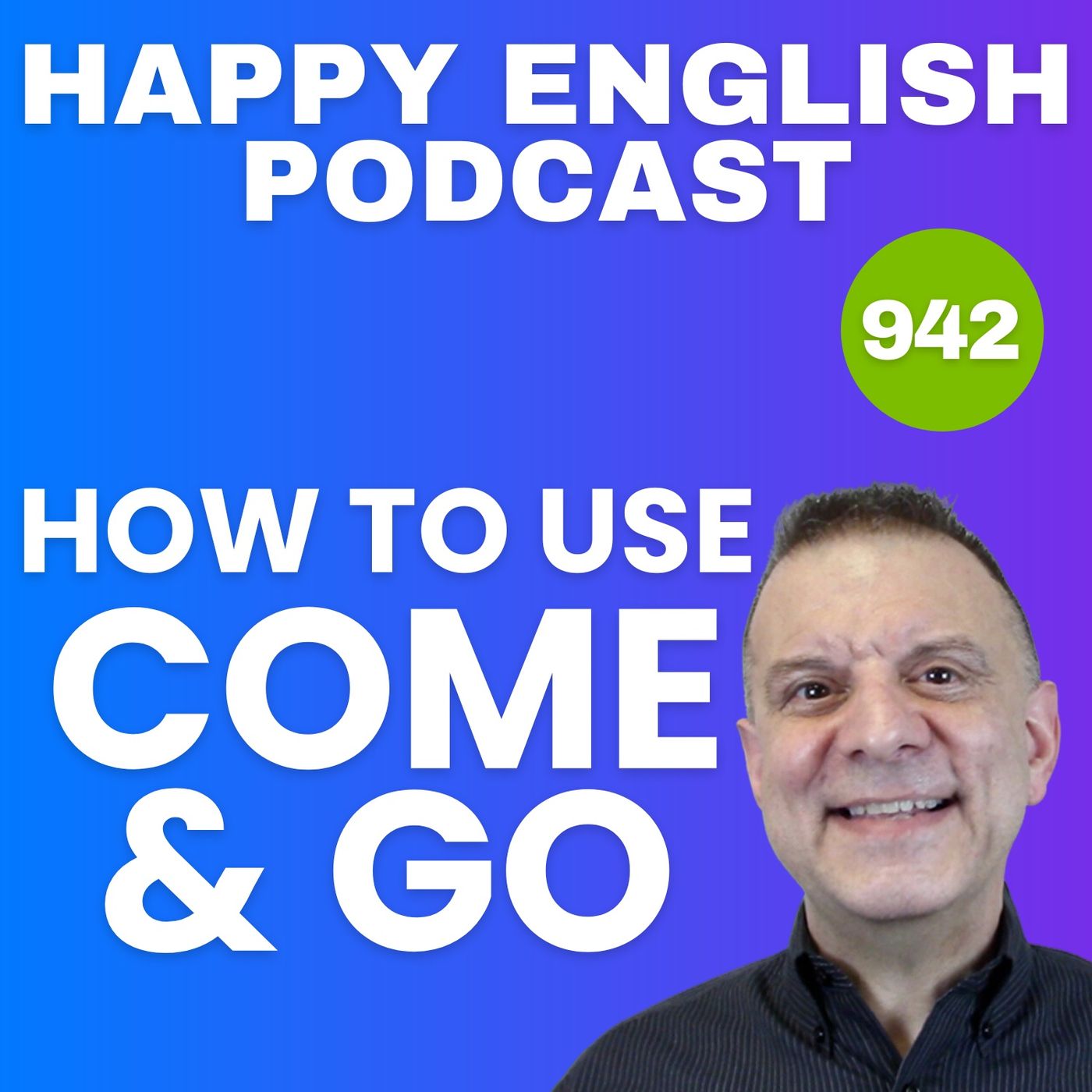
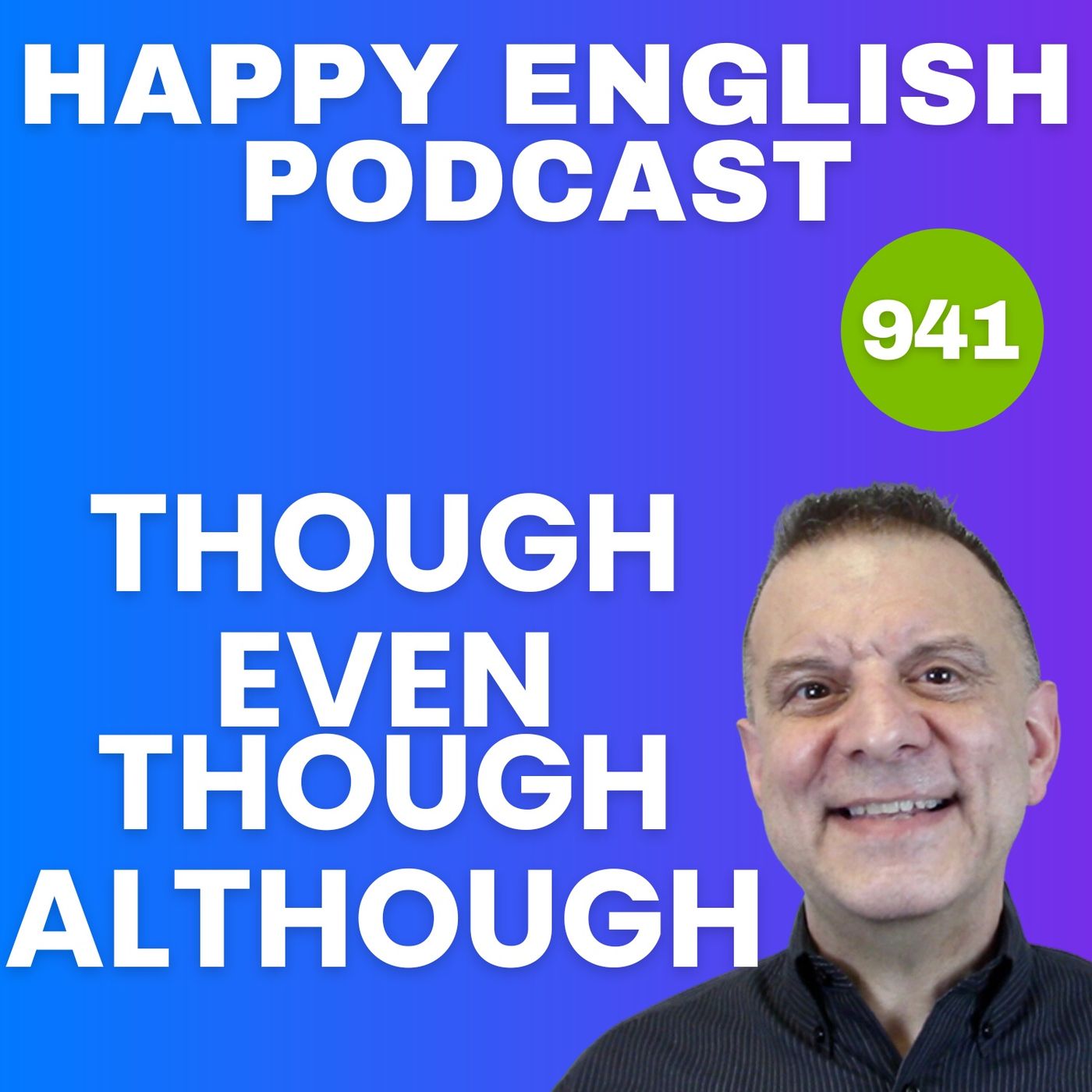
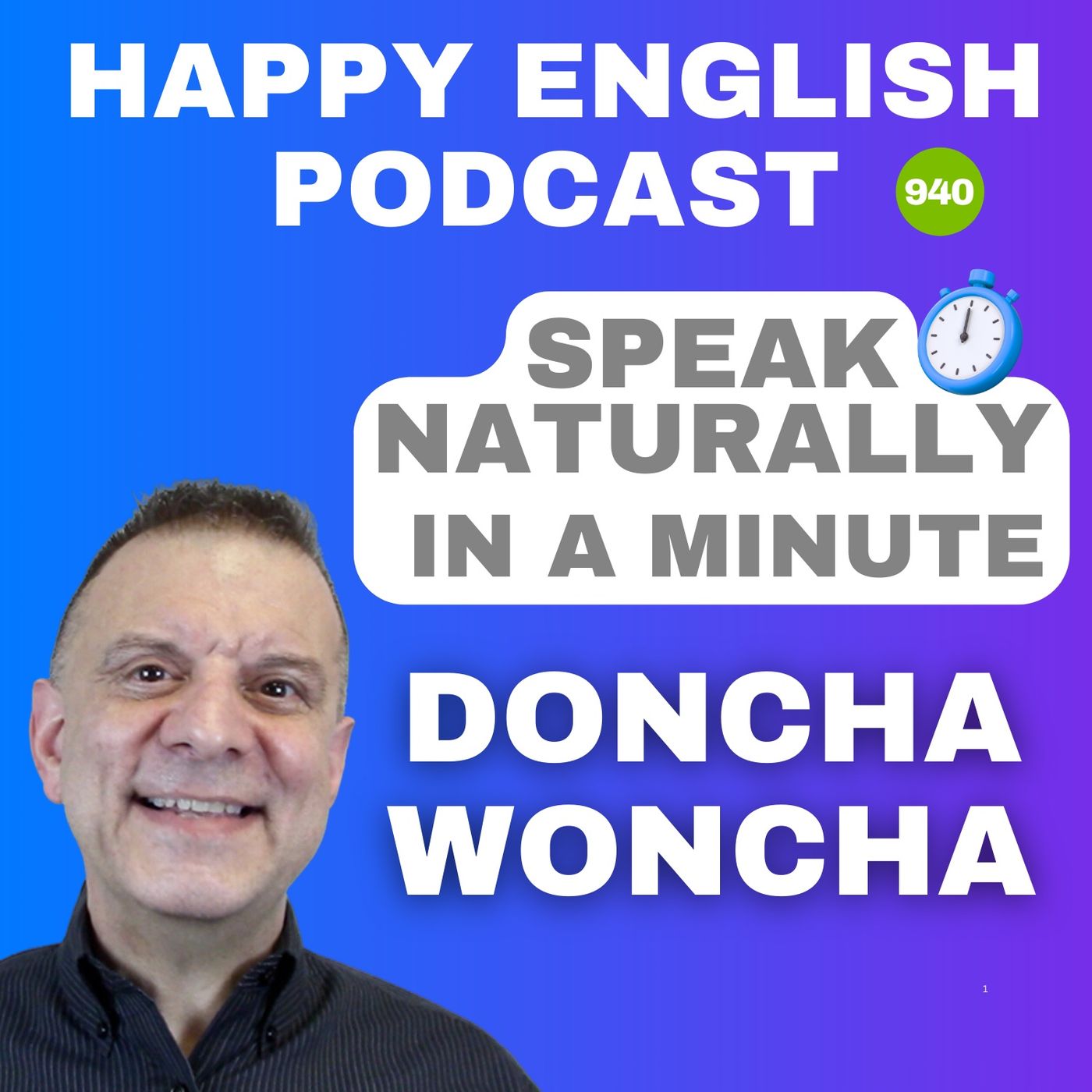
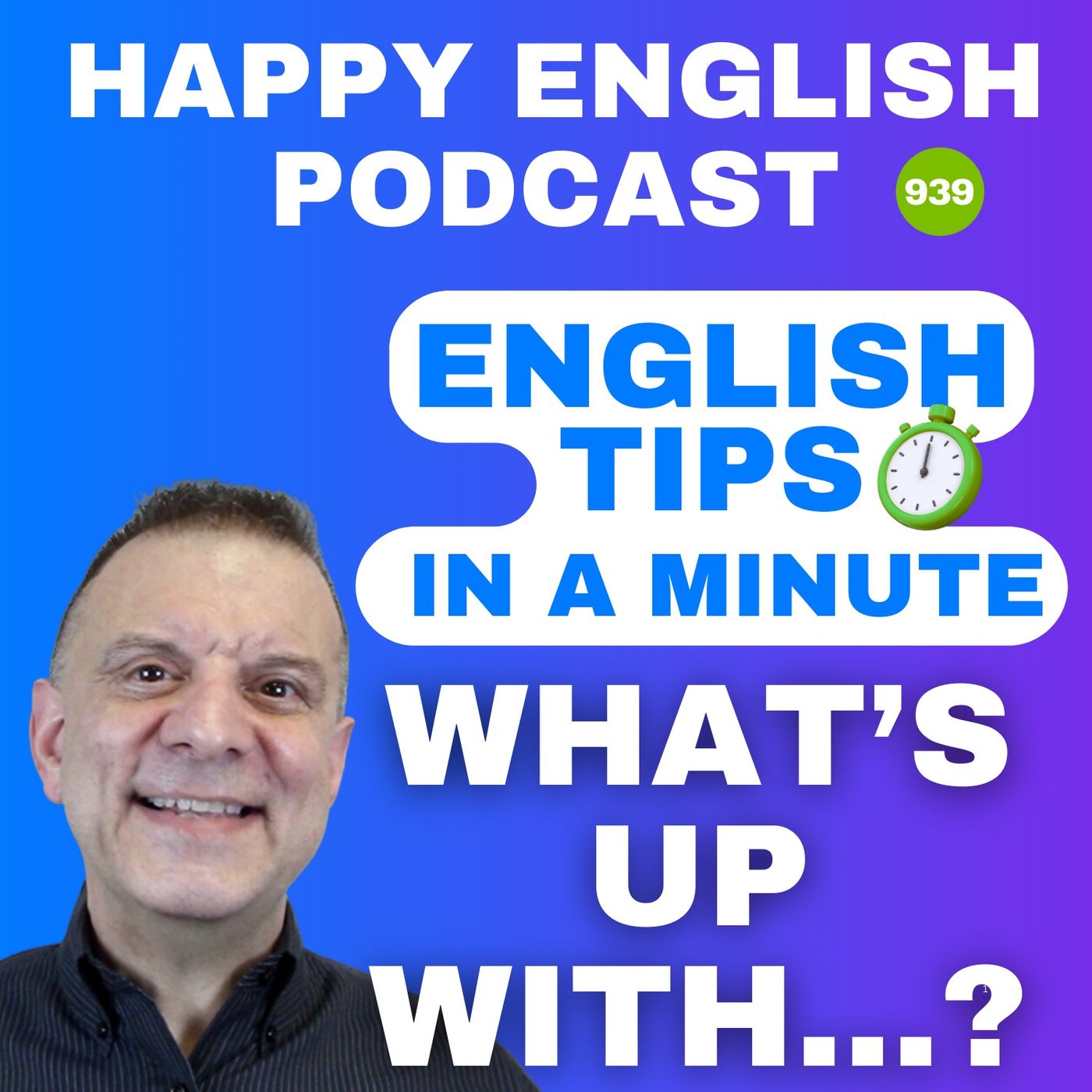
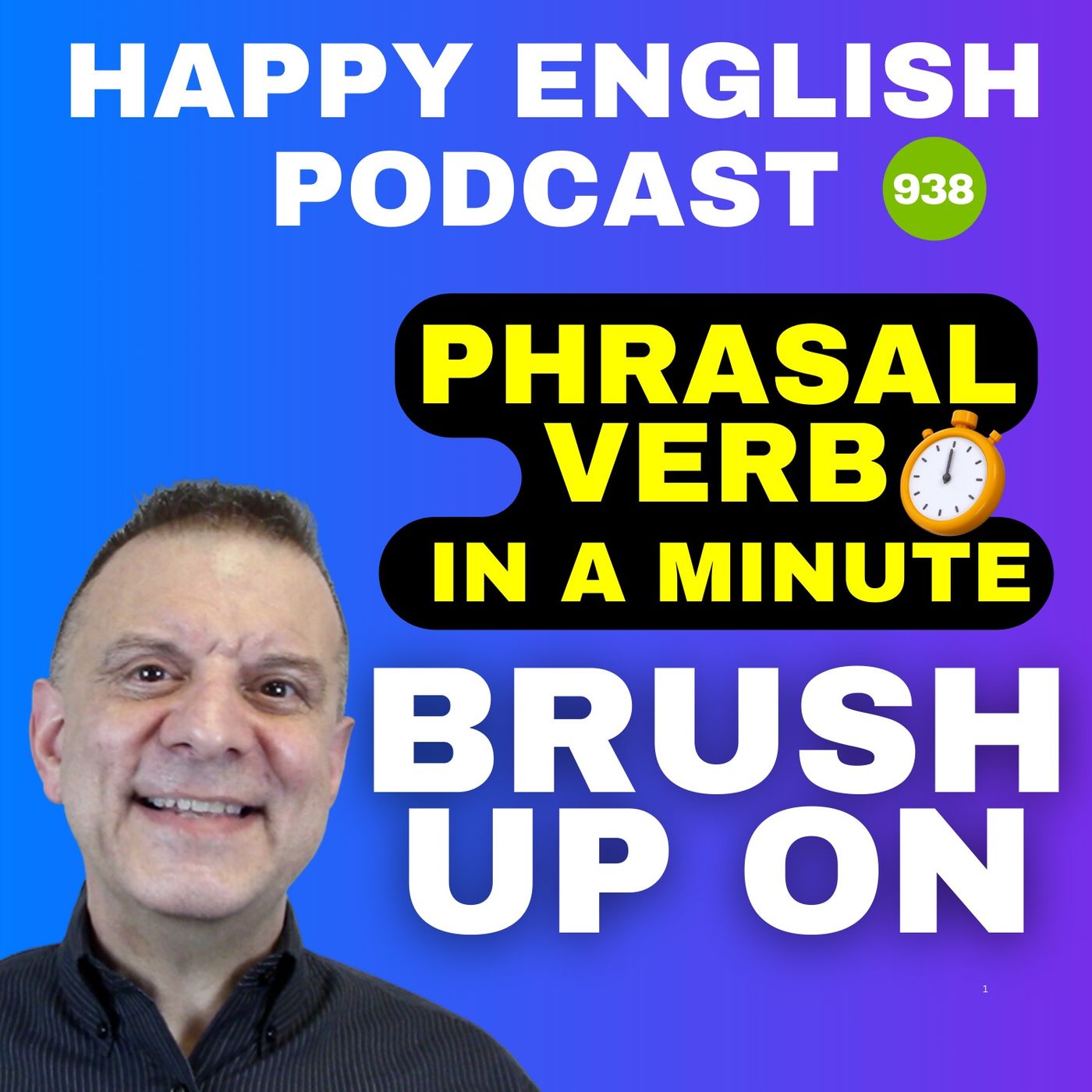
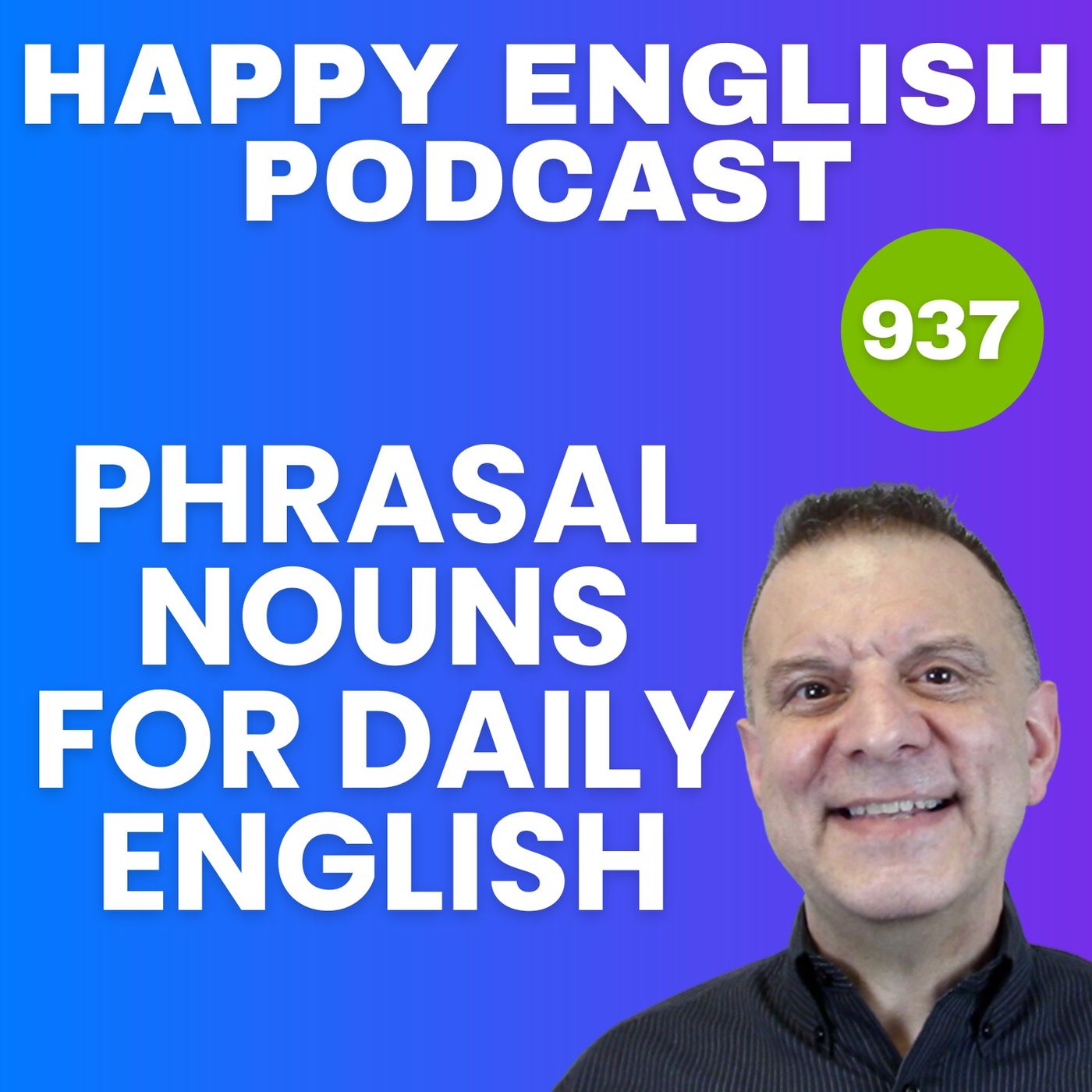
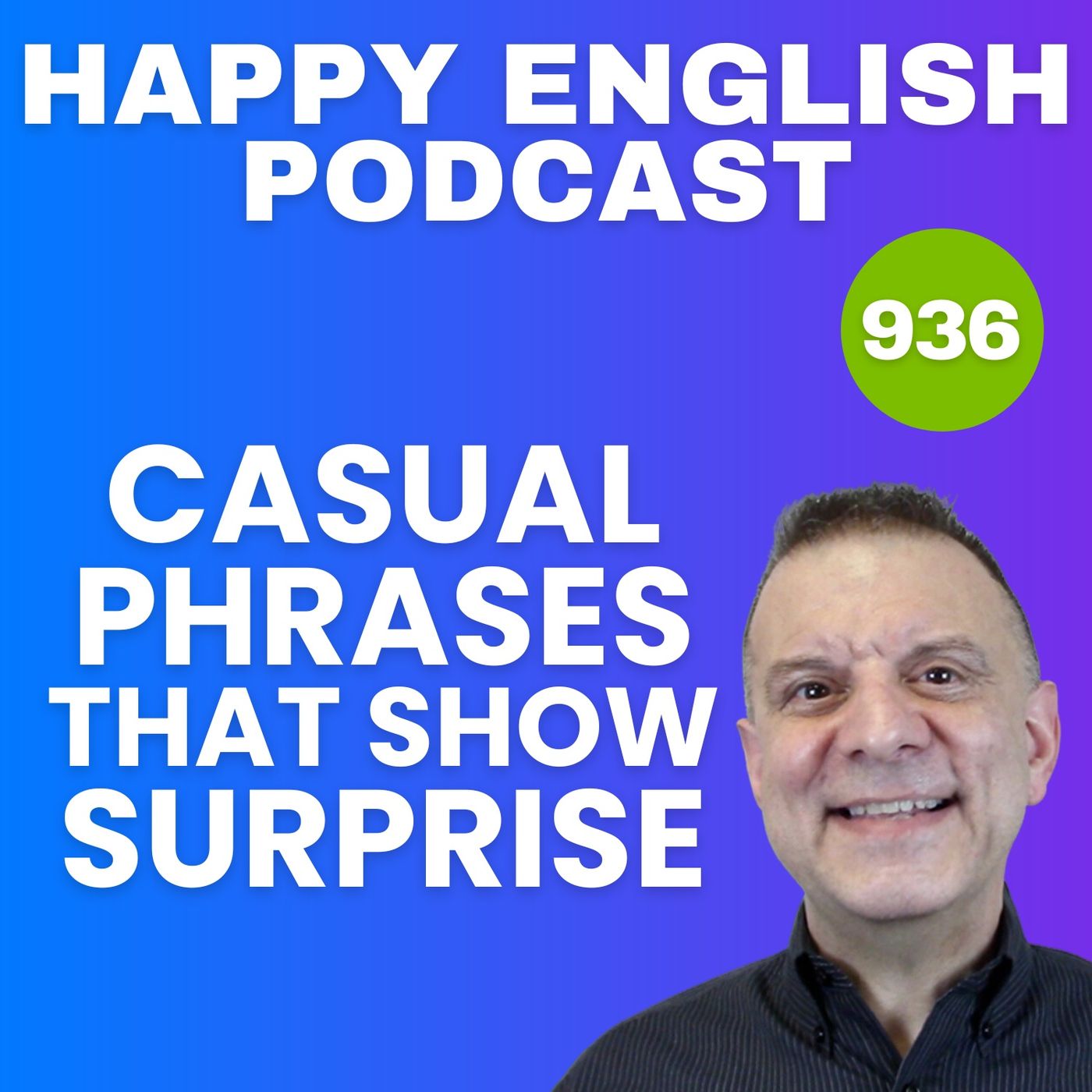
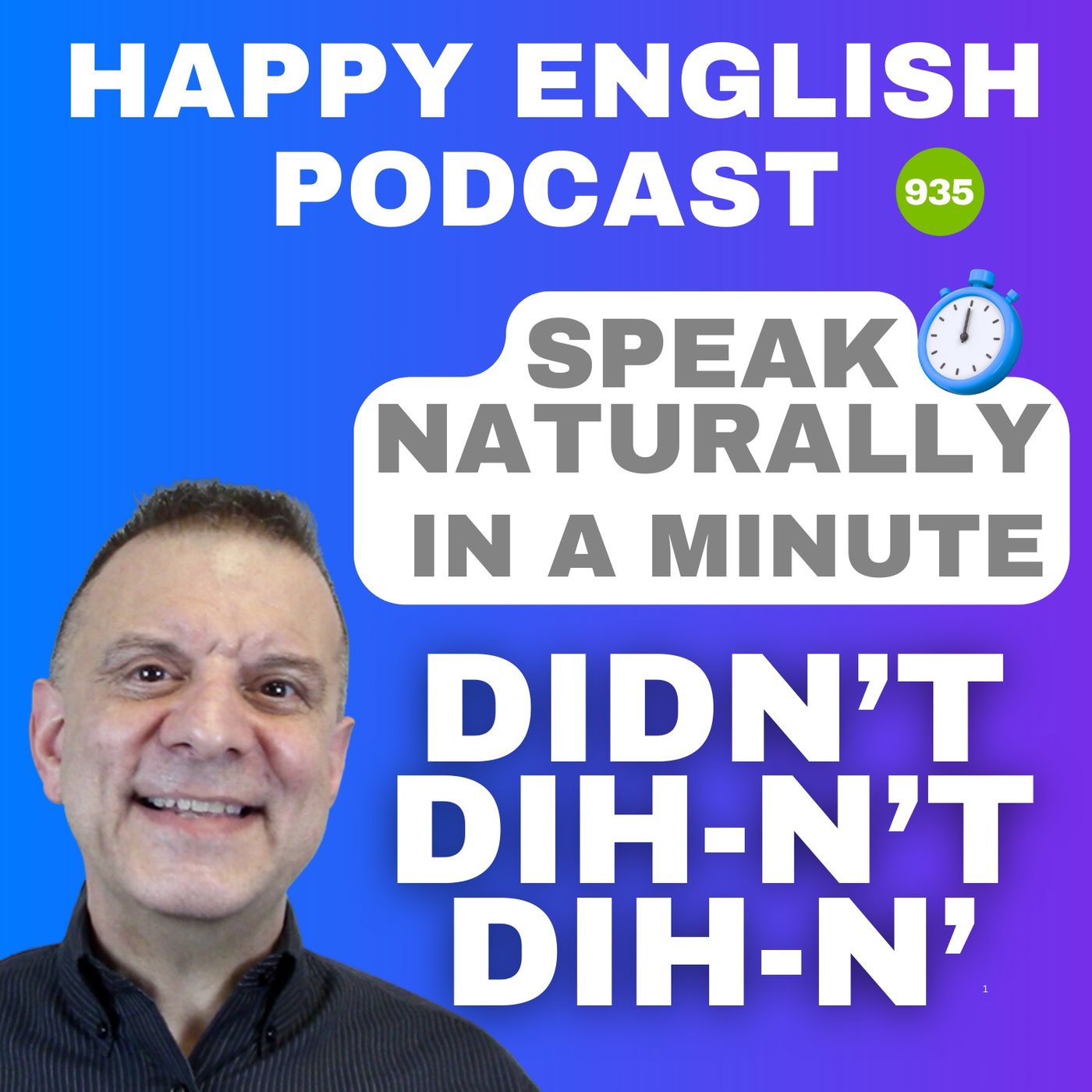
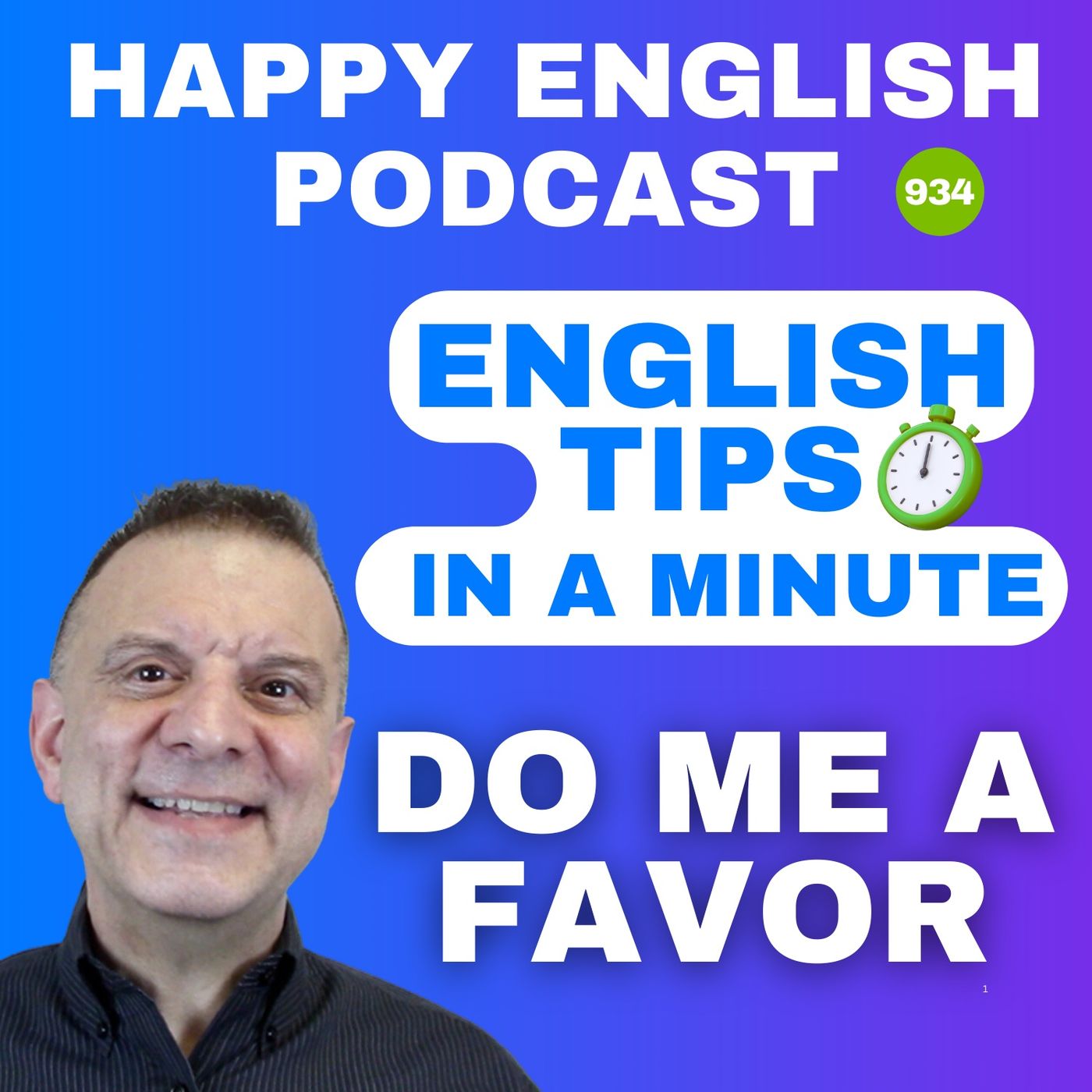
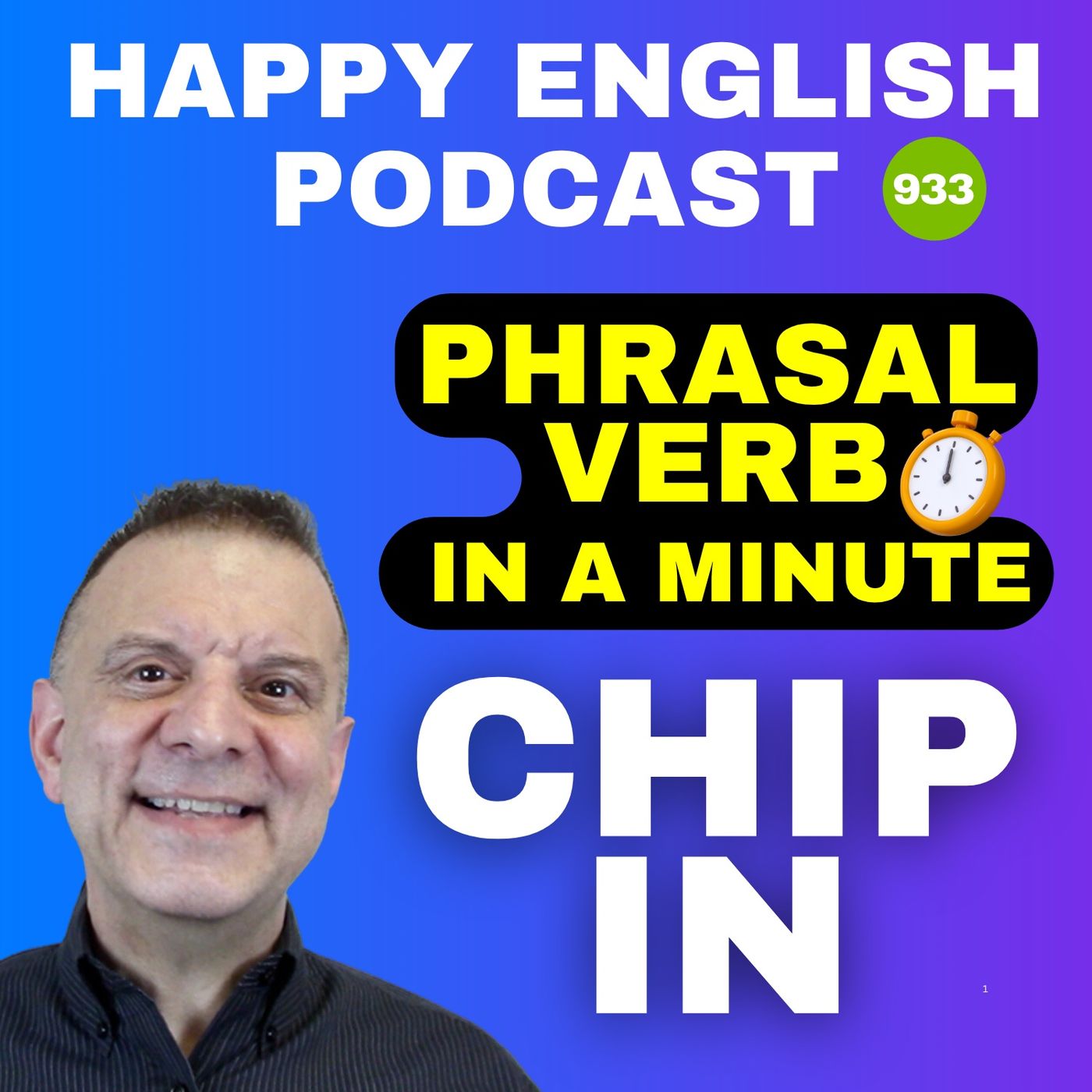
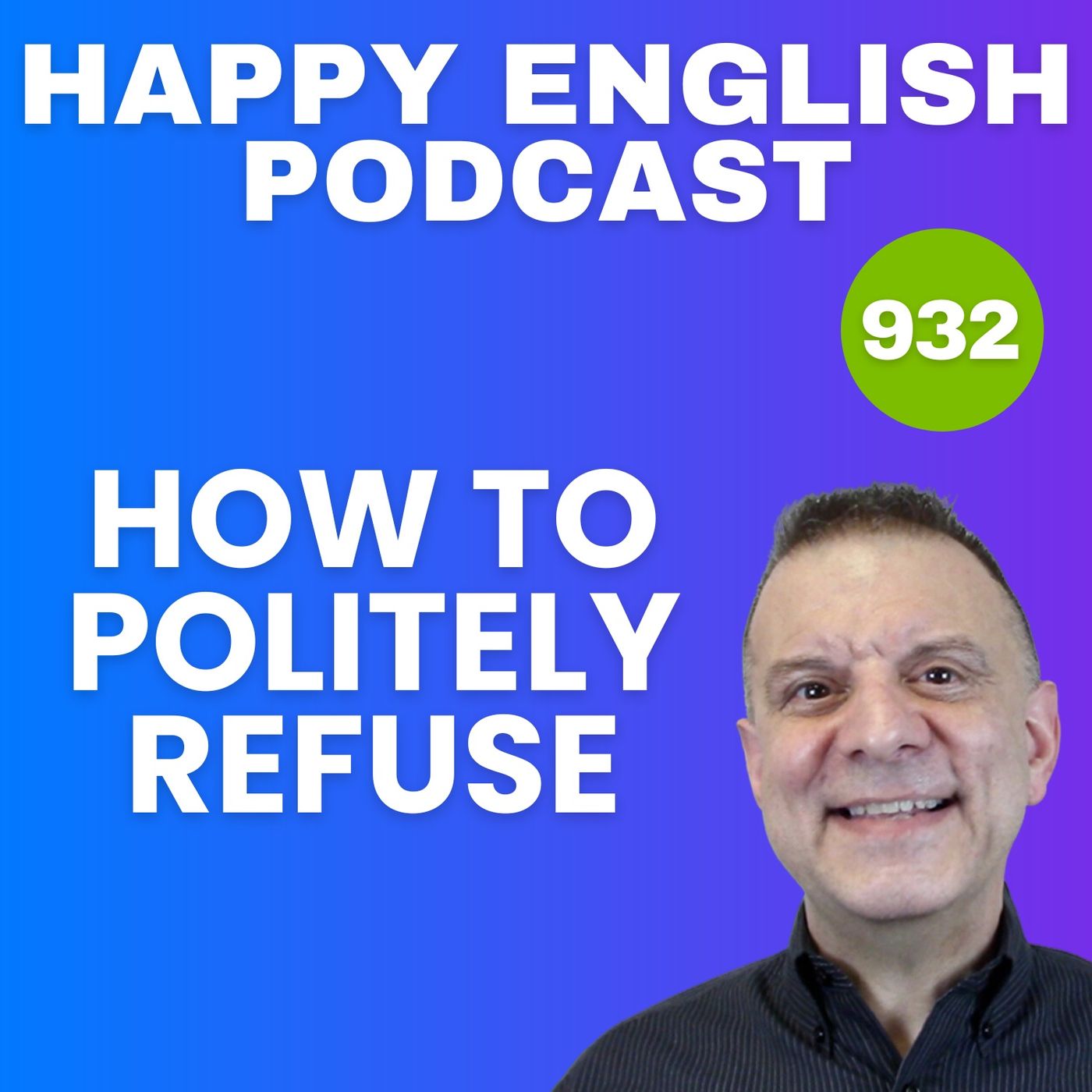
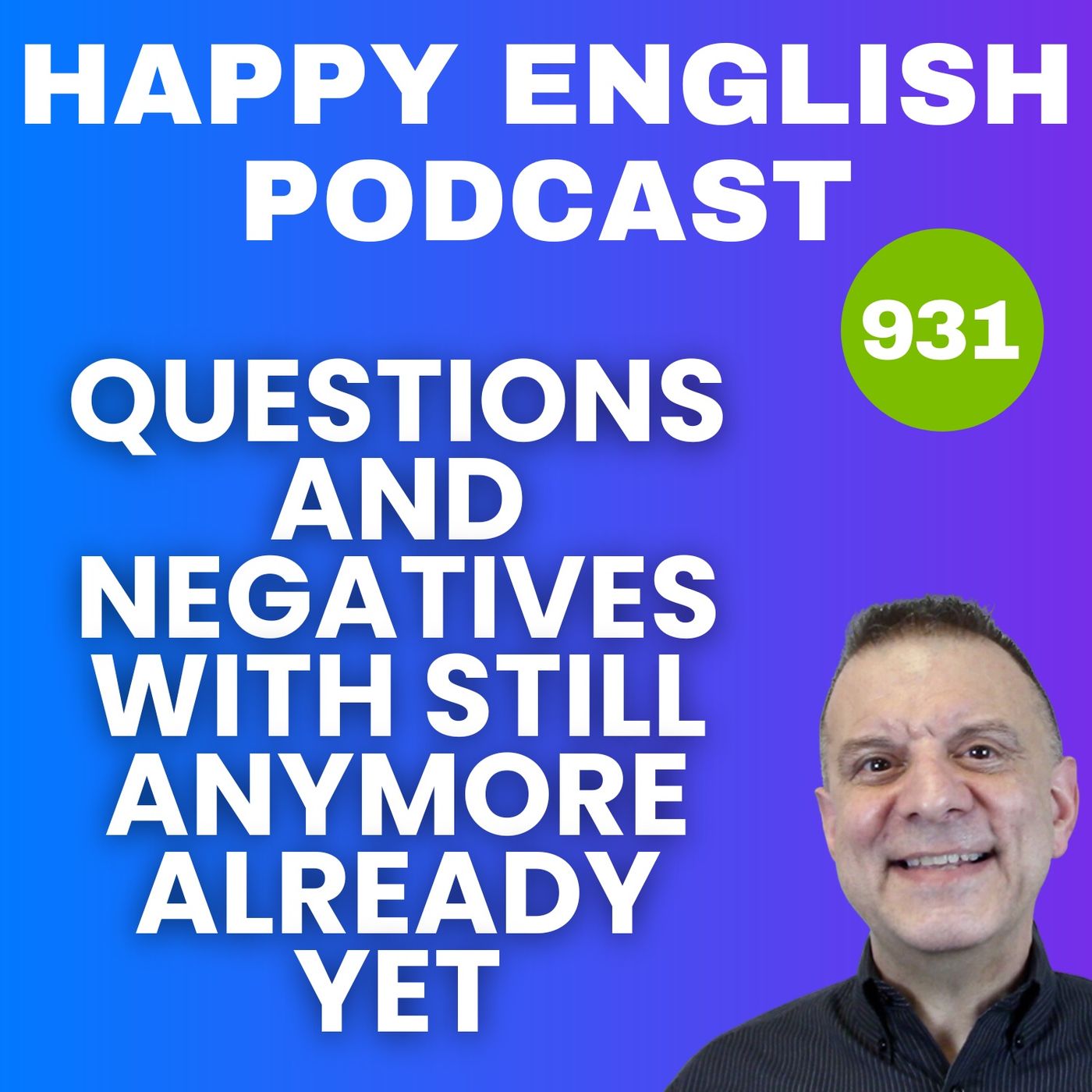
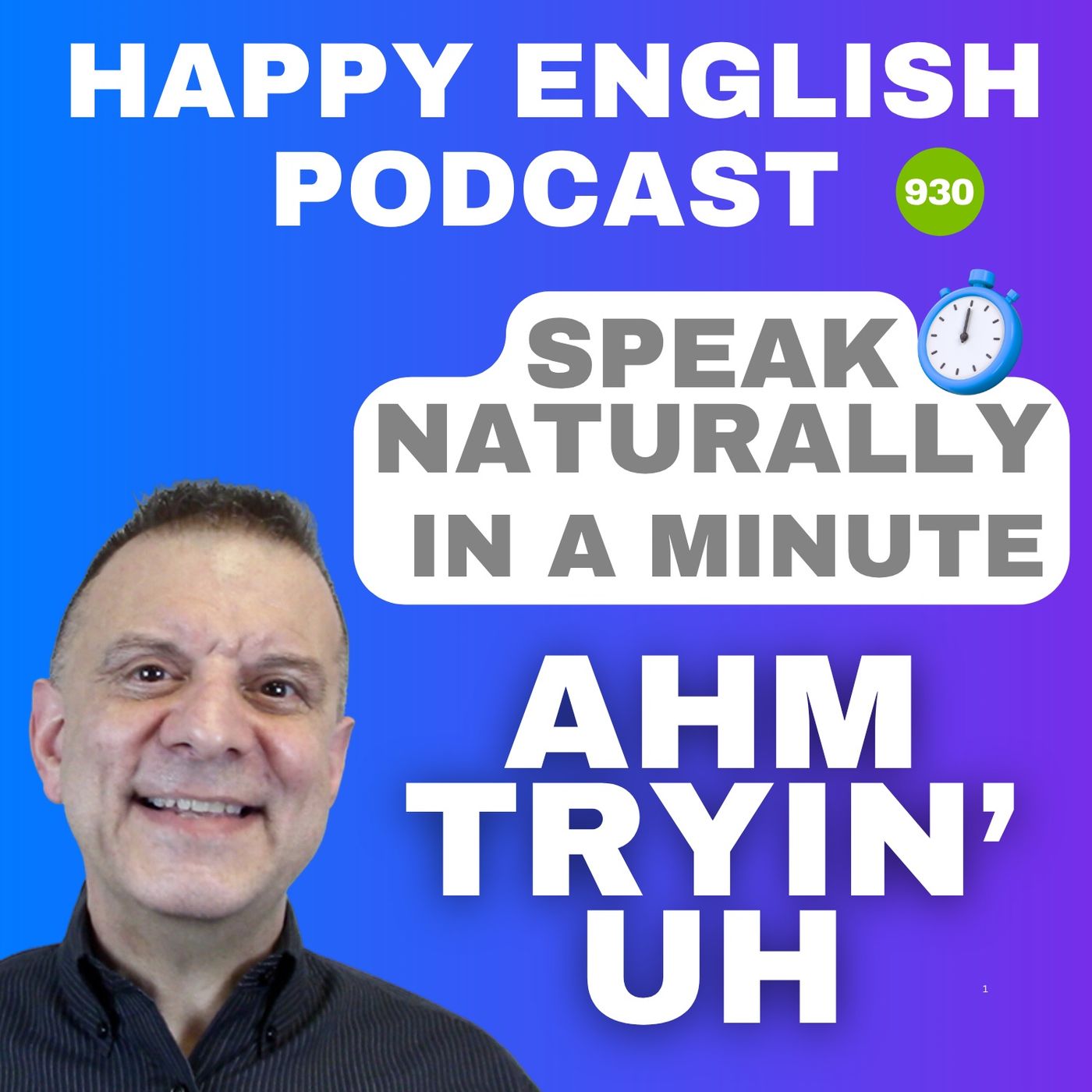
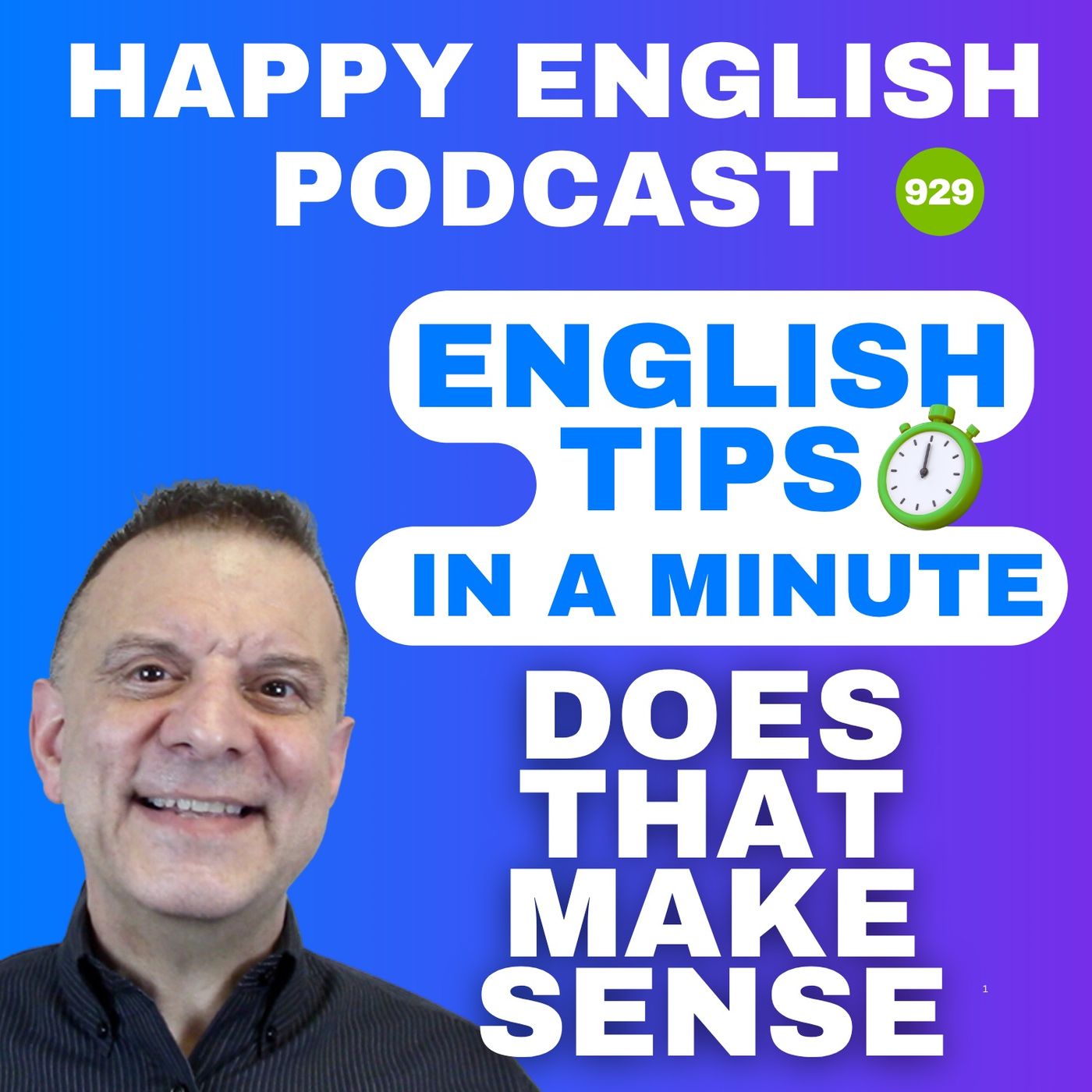
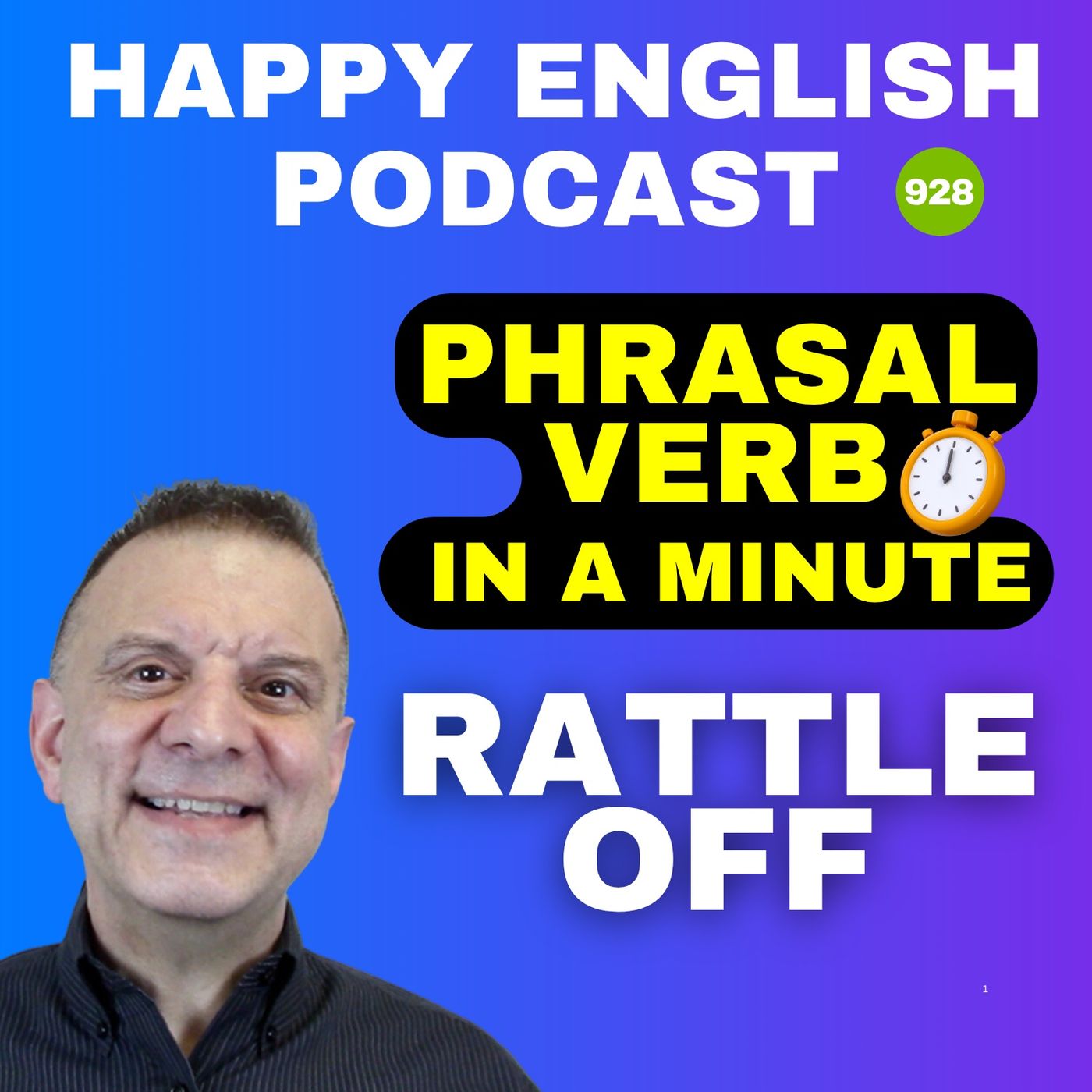
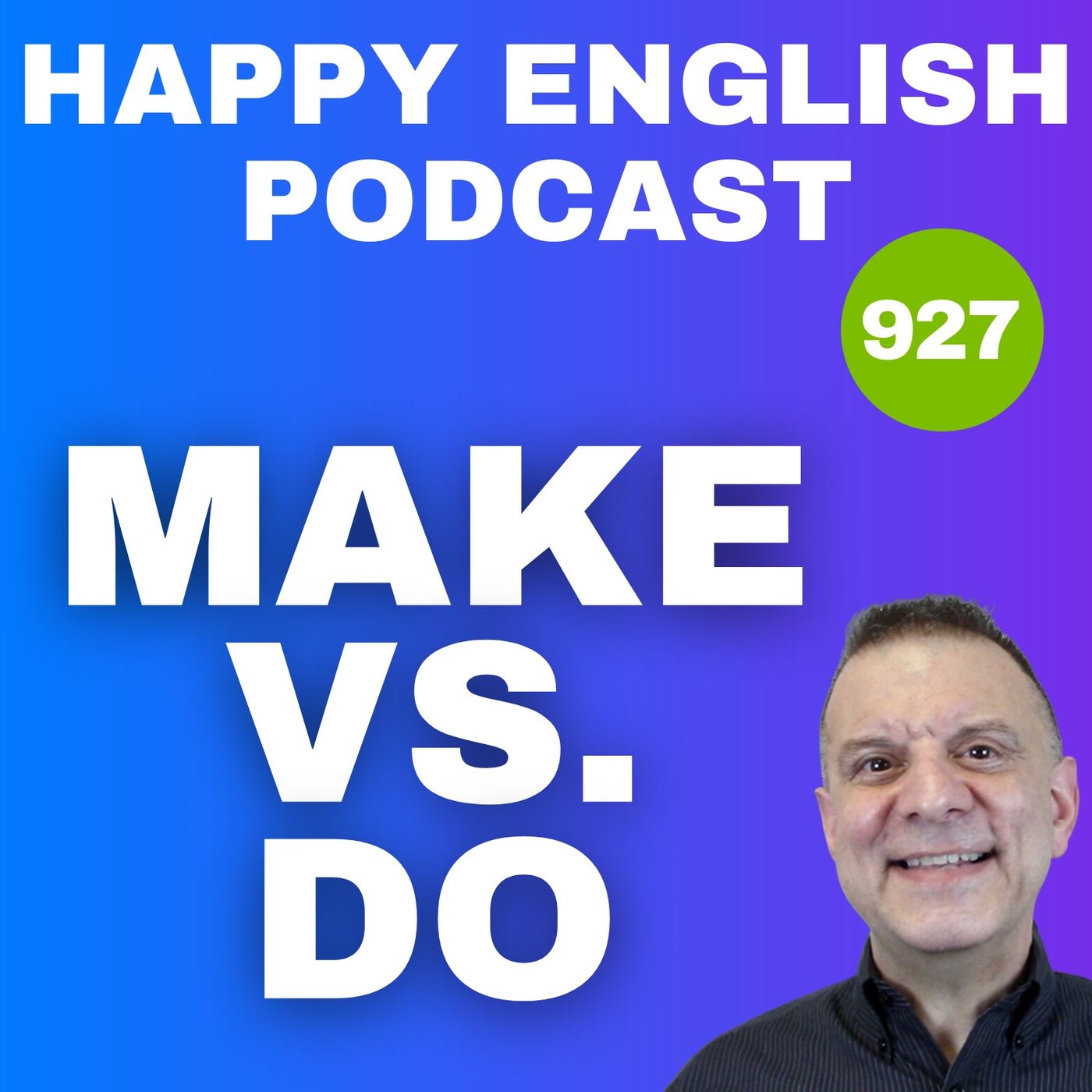
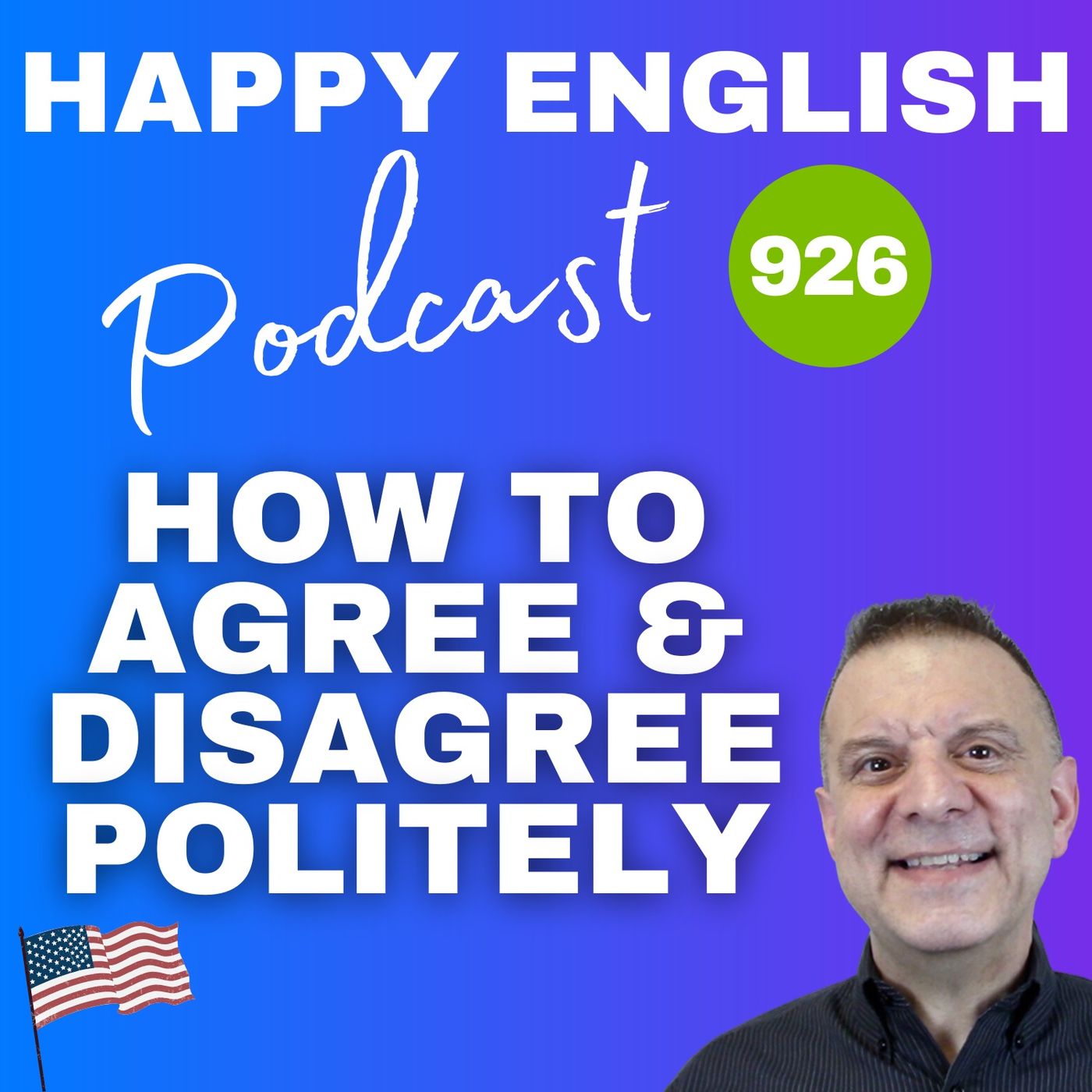


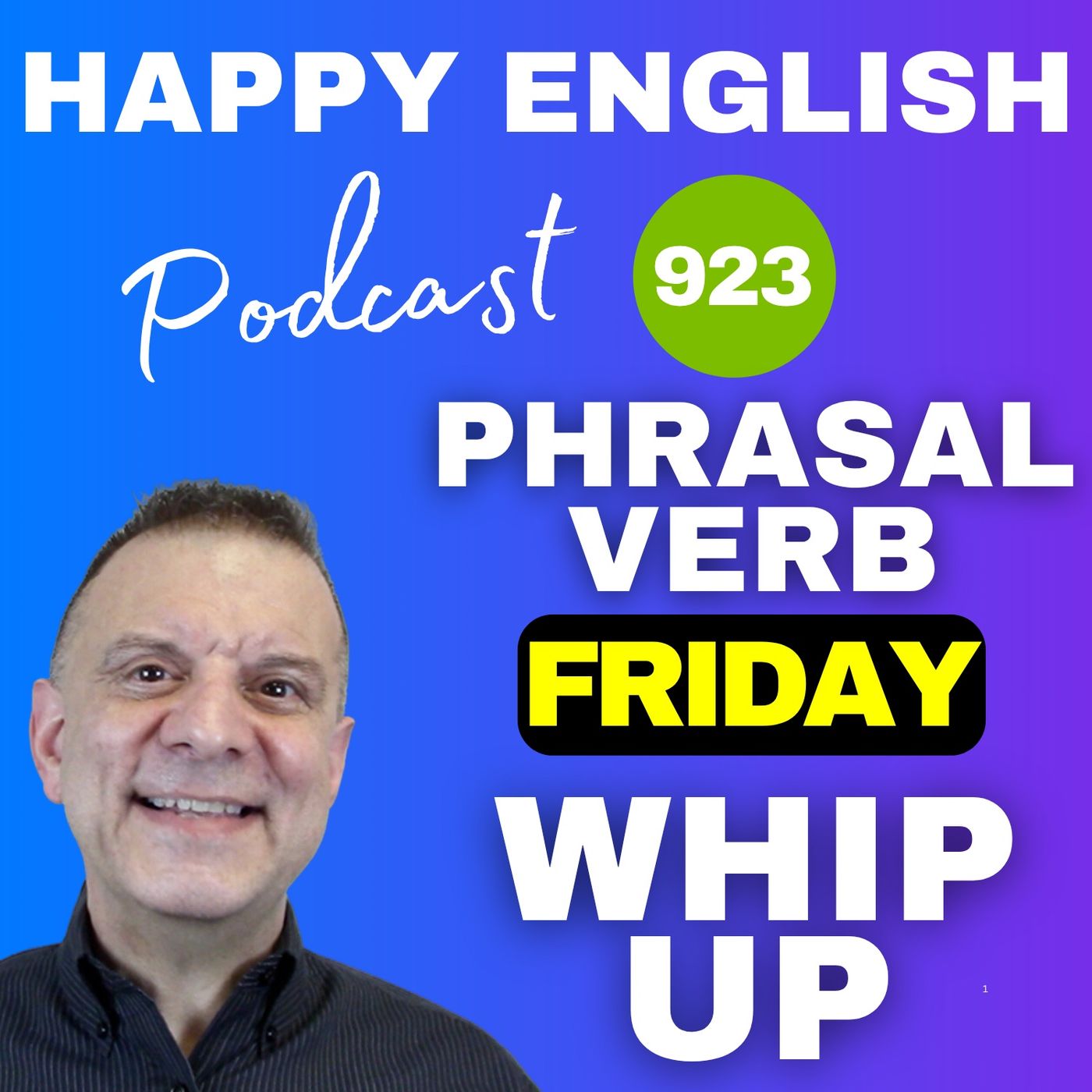



Thank you 😊
😍👌
useful, thanks 😊
Hi.... sorry, I got a question....can we just use them in business situations?
practical 🙏
Superb👍👍👍
It's one hell of a lesson which is so great and understandable!thanks🙏
that was great
it was great,thanks
🫶🫶
perfect 🥰
There aren't any lyrics in podcast number one that you send me
hi how can I find lyrics?
I found this podcast from the cast box app and it's so good
Thank you so much. It was very useful.
با vpn باید دانلود کنید تا باز بشه
بدون متن زیاد جالب نیست کجا متن رو پیدا کنیم
👍👍
The best podcast... thank you, Michelle
Why do you speak like a robot?